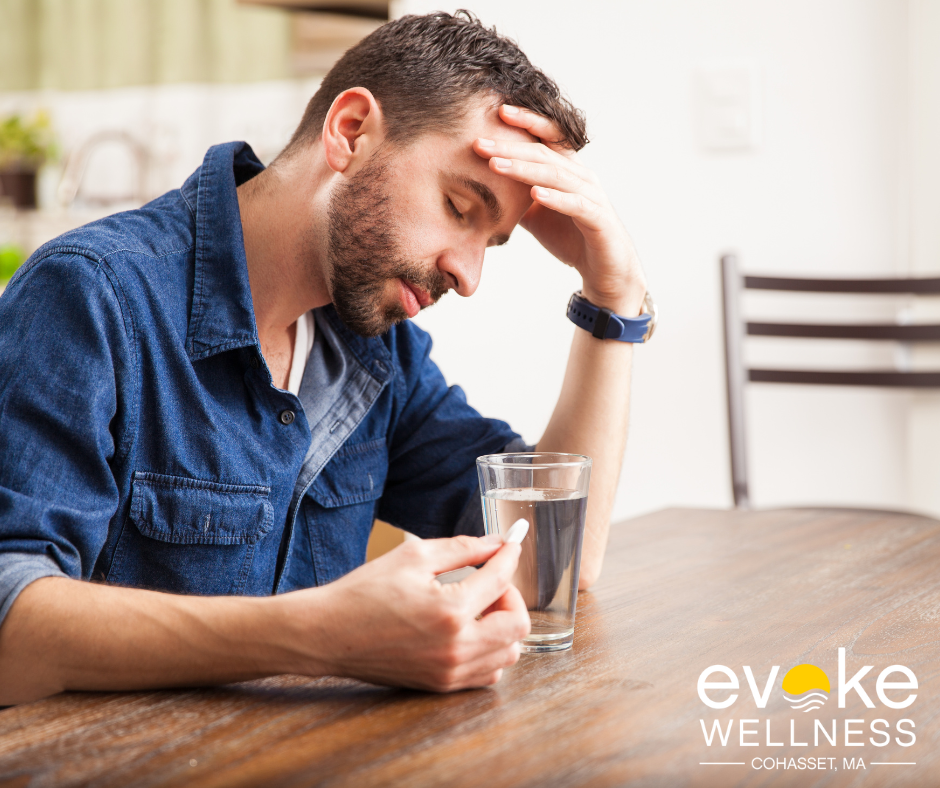Detoxing at home may seem like an appealing option if you’re struggling with substance abuse. But is it safe or effective? Before embarking on a DIY detox journey, it’s crucial to understand the potential risks and benefits. By the end, you’ll have a clearer picture of whether home detox is right for you and how to approach recovery responsibly. Your health and safety should always come first when dealing with addiction.
Call us at (617) 917-3485 today or reach out online.
Understanding the Basics of Detoxification
What is Detoxification?
Detoxification refers to the process of removing toxic substances from the body. These toxins can come from external sources like pollution, pesticides, and processed foods or internal sources like metabolic waste products.
The Body’s Natural Detox Systems
Your body has an incredible, built-in detoxification system that works around the clock. The liver, kidneys, digestive system, lungs, and skin all play crucial roles in eliminating toxins and waste.
Key functions include:
- Liver breaks down and filters toxins from the blood
- Kidneys remove waste and excess water via urine
- Lungs expel carbon dioxide and other gaseous wastes
- Skin eliminates some wastes through perspiration
Supporting Natural Detox
While your body is designed to detox, you can optimize this process through dietary and lifestyle choices. Staying hydrated, getting enough fiber, exercising regularly, and managing stress all support your body’s detoxification pathways.
Risks of DIY Detox
Attempting to detox at home without medical supervision carries significant risks. While the appeal of avoiding the costs and perceived stigma of professional treatment is understandable, going the DIY route can be extremely dangerous.
Severe Withdrawal Symptoms
Depending on the substance and severity of the addiction, withdrawal symptoms from abruptly stopping use can range from uncomfortable to life-threatening. Common effects include nausea, vomiting, tremors, seizures and delirium tremens.
Relapse and Overdose Risk
Those detoxing alone are at high risk of relapsing due to intense cravings and lack of support. This increases chances of accidental overdose, as the body’s tolerance has decreased during detox.
Potential for Self-Harm
Mood swings, depression, anxiety and suicidal thoughts are common during the detox process. Without proper monitoring and intervention, those detoxing at home may harm themselves or others.
While detoxing at home may seem appealing, the risks of DIY detox are simply too high for most situations. Seeking medical help provides vital monitoring, medications, counseling and a safer, more comfortable experience overall.
Benefits of a Gentle Home Detox
Improved Digestion
A gentle home detox can work wonders for your digestive system. By eliminating processed foods and focusing on nutrient-dense whole foods, you give your body a chance to reset. This can improve nutrient absorption and promote healthy gut bacteria.
Increased Energy Levels
When your body doesn’t have to work overtime processing inflammatory foods and toxins, you’ll likely experience a noticeable boost in energy. Many report feeling lighter, more focused and productive after a detox.
Enhanced Mental Clarity
In addition to physical benefits, a detox may also sharpen your mind. Eliminating sugary, fatty and processed fare reduces brain fog and fatigue. You may find your concentration, mood and cognitive abilities improve.
The Best Home Remedy for Detoxing Your Body
Hydrate, Hydrate, Hydrate
Proper hydration is key for flushing out toxins. Aim to drink at least 8 glasses of water daily – more if you’re very active. Herbal teas like green tea also count towards your fluid intake and provide antioxidants.
Load Up on Fiber
Fiber helps bind to and eliminate toxins from your digestive tract. Focus on high-fiber foods like vegetables, fruits, whole grains, legumes, nuts and seeds. Gradually increase your intake to avoid gas and bloating.
Eat Nutrient-Rich Foods
Detoxifying nutrients include vitamins A, C, E, zinc and selenium. Load up on citrus fruits, bell peppers, broccoli, spinach, tomatoes, nuts, seeds and fatty fish. Avoid processed, sugary and fatty foods that can tax your body’s detox pathways.
Overcoming Detox Challenges
Managing Withdrawal Symptoms
You may experience unpleasant physical and psychological withdrawal symptoms when detoxing. These can include nausea, headaches, insomnia, anxiety, and cravings. While uncomfortable, remember that these are temporary and a sign your body is healing.
Stay hydrated, get plenty of rest, and consider over-the-counter medications to ease milder symptoms. Severe withdrawal requires medical supervision.
Staying Motivated
Detoxing takes determination. Remind yourself of your motivation – whether improving health, repairing relationships, or regaining control. Celebrate small wins along the way.
Write down your reasons for quitting and read them during tough moments. Join a support group or work with a counselor for accountability and encouragement.
Consistency is Key
Detoxing inconsistently can prolong withdrawal and increase relapse risk. Commit to seeing it through, one day at a time. Avoid triggers that make you want to use again.
Create a detox-friendly environment by removing temptations. Keep a routine to maintain structure. Be patient – healing takes time.
When to Seek Professional Help for Detoxification
Signs It’s Time for Medical Assistance
- Severe withdrawal symptoms like seizures, hallucinations or delirium tremens
- Existing medical conditions that could complicate detox
- Previous failed attempts at quitting on your own
The Benefits of Supervised Detox
A medically supervised detox program provides a safe, controlled environment. Doctors can prescribe medications to ease uncomfortable withdrawal effects. Around-the-clock monitoring reduces health risks.
Finding Quality Treatment
Do thorough research on accredited detox facilities and addiction treatment programs. Consult your doctor or an addiction specialist for recommendations tailored to your situation. With professional support, you’ll have the best chance of a successful, long-term recovery.
Conclusion
As you consider whether to detox at home, remember that your health and safety should always come first. While some mild detox methods may be appropriate for general wellness, attempting to detox from drugs or alcohol on your own can be dangerous. Be honest with yourself about your substance use and withdrawal risks. When in doubt, consult a medical professional who can provide personalized guidance and support. There’s no shame in seeking help – in fact, it’s often the bravest and smartest choice you can make. With the right approach and resources, you can begin your journey to better health in a safe, effective way that sets you up for long-term success.
Begin Your Journey with Evoke Wellness at Cohasset
If you or a loved one is considering treatment, Evoke Wellness at Cohasset invites you to contact us. Our compassionate team is ready to answer your questions, discuss your needs, and help you take the first steps toward recovery. In Cohasset, you’ll find more than just a treatment program – you’ll discover a community dedicated to your wellness and success. Together, let’s embrace the journey to recovery and the promise of a new beginning. Call us at (617) 917-3485 today or reach out online.





